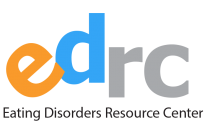CREDENTIALS/DISCIPLINE: I have been working with individuals, teens, and families in many different capacities since 2002. Areas of emphasis include: anxiety management, couples therapy, (including pre-martial counseling), and addressing disordered eating behaviors. I engage clients using a CBT and mindfulness approach. My goals are to help client in identifying distorted thinking, modifying beliefs, relating to others in different ways, and changing behaviors.
BOARD CERTIFIED: Yes, CA Board of Behavioral Sciences
Number of years treating patients with eating disorders: 5-8 years
Number of patients with eating disorders I treat annually: 5-10
EDUCATION, TRAINING, and EXPERTISE: M.A. in Counseling Psychology from Santa Clara University and a B.S. in Psychology from Washington State University. Beth built the foundation of her training at the Bill Wilson Center, in Santa Clara. At the Bill Wilson Center Beth ran groups for troubled teens while also working with adult clients and families in the outpatient clinic. Beth has also worked with the Franklin-McKinley School District, providing counseling for elementary aged children. Part of the Beth’s multi-faceted training also came from working as a Professional Foster Care Social Worker with FamiliesFirstInc., providing family and youth support within the context of foster care and social services. Most recently, Beth was the Director of the Helping Hands program at Family Violence Counseling Associates. This experience included group therapy for child witnesses of family violence and individual counseling for women affected by domestic violence. Beth completed the Eating Disorder Certificate program at JFK University in 2012.
TREATMENT PHILOSOPHY: Beth uses a relational framework that integrates cognitive-behavioral, family systems and interpersonal-dynamic theories. As a client, you can expect a collaborative relationship as we work together toward your goals.
Yes, I think it is possible to recover from an eating disorder and define recovery as: Recovery is a process, usually best taken one step at a time. Recovery can be defined as being able to access our feelings, tolerating them, making healthy decisions while functioning at the same time. Success is more likely to occur when the client wants and desires recovery. Until the behaviors of an eating disorder as the symptoms rather than the problem, the recovery will likely falter. My goal is help uncover the problem, address the symptoms and provide the client with recovery process that fits their needs.
FEES: Cash, Personal Checks, Sliding Scale, Insurance-Victim Witness; if “Provider out of network” in PPO, patient needs to apply for reimbursement.
INSURANCE: None, but does accept Insurance-Victim Witness.

